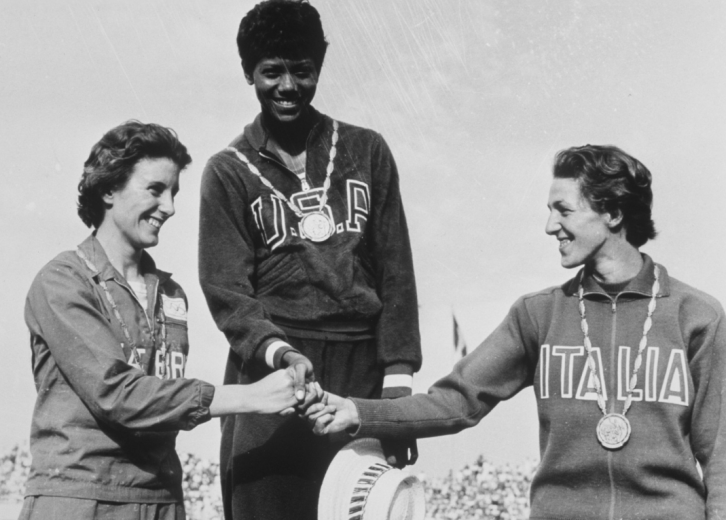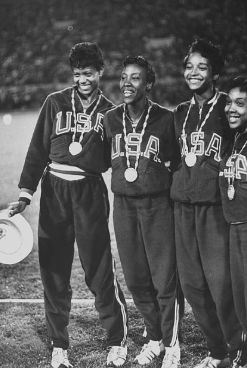
Wilma Rudolph had to break barriers set up by male-dominated sports. Before Title IX was passed, societal norms dictated that women belonged inside and no benefits could be gained from women’s involvement in athletics. Her performance at the 1960 Olympics paved the way for the acceptance of female athletes, shining a spotlight on women's sports, especially when participating in previously all-male track events, such as the Millrose Games. Wilma’s triumph bolstered the gender equality movement in athletics.

[Getty Images, 1960]

[Getty Images, 1960]
"No person in the United States shall, on the basis of sex, be excluded from participation in, be denied the benefits of, or be subjected to discrimination under any education program or activity receiving Federal financial assistance."
-Title IX of the Education Amendments Act of 1972
“Down South, there was the old 'ladies-don’t-do-such-things' way of thinking. You couldn't be a lady and a good athlete at the same time.”
- Wilma Rudolph
"She had it all. She had the charisma, she had the athletic ability, she had everything. When I look back, she opened up the door for women's sports, period. I'm not just talking about track and field."
- Edward Temple
“She is one of the greatest Olympic champions ever. But more importantly, she opened the door for many young women and girls in track and field, and we are forever indebted to her."
- U.S. Olympic Committee President LeRoy Walker